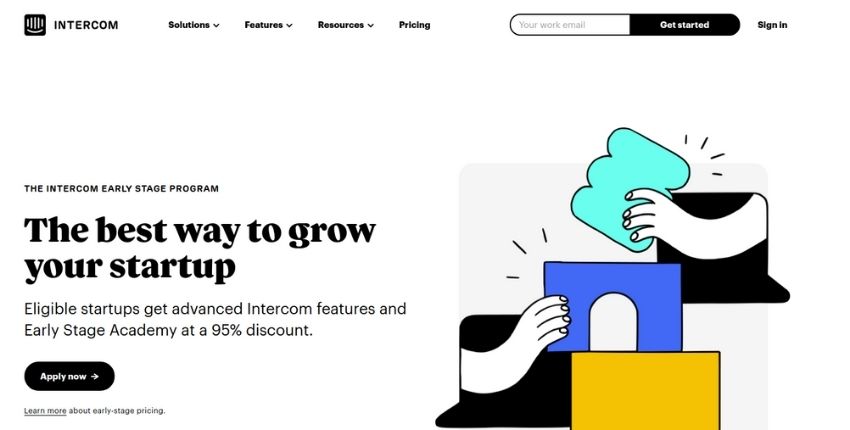Do you have an amazing idea that you think could take the shape of a thriving business?
Are you aspiring to be a zealous founder and entrepreneur who launched a startup and turned it into a million-dollar business?
If your reply is in affirmative “Yes” to both of these questions then we wish you all the luck in this world. This world needs more visionary entrepreneurs who can inspire others to follow their dreams.
When we hear the team “startup”, we usually think of various successful entrepreneurs who had the grit and determination to execute their ideas. Airbnb, Amazon, Pandora, Uber, to name a few.
Wait, we are also reminded of many startups who couldn’t quite make it. Only 40% of startups are able to become profitable. In other words, not all startups become successful.
In these uncertain times, initiating a startup calls for the smart use of technology and skills to gain some sort of momentum in already overcrowded markets.
Be it time, money, or manpower, startups have limited resources at their disposal. These have to be utilized efficiently to ensure your startup sets its foot in the right direction.
Remote work culture is booming, which presents another challenge to startup owners and managers as getting distributed teams to collaborate and work cohesively towards project goals is not easy.
The good news is that advancing technology has enabled businesses of all types and sizes, including startups, to smartly use their resources to achieve high efficiency and productivity.
So, we are sharing with you some of the most popular tools that are used widely by startups in 2021. These tools offer the right combination of high functionality, ease of usage, and reasonable pricing to startups that are just about to begin their operations.
Let’s dig deeper and find more about these tools.
5 Tools For Startups To Make A Winning Start In 2022
1. ProofHub (Team Collaboration and Project Management)
ProofHub counts among top-rated team collaboration and project management tools for teams of all sizes across various industries today. How does it help your startup in 2022? ProofHub is an easy-to-learn and use tool that offers a wide range of powerful features under one roof for easy management of both tasks and teams.

ProofHub has an inbuilt task management tool and time tracking tool, which enables managers to come up with an efficient project management plan list. You can allocate tasks to the right people, track their progress, and record how much time has been spent on completing tasks.
Whether you are managing an in-office team or a remote team, you can access ProofHub from any device, any location. ProofHub’s interface is simple and intuitive, which makes onboarding easier too.
Main Features Include:
- Custom fields to add more fields to store custom data at the task level
- Task management for easy creation, allocation, and monitoring of tasks
- Table view for easy filtering of tasks based on priority
- Kanban boards enable you to see work moving through multiple stages
- Timesheets enable you to track the time spent on performing tasks
- Group Chat allows users to send and receive instant messages directly
- Access frequently used information with Stickies and Bookmarks
- Online proofing of documents through annotation tools
- Announcements to keep all team members updated
Pricing: The Ultimate Control plan is priced at $89 per month, billed annually.
2. Clarity (Ideation Tool)
Clarity is a popular ideation tool that can be of great use for both aspiring and experienced entrepreneurs. The tool provides a platform where you can connect directly with top advisors and industry experts to receive valuable advice on a wide range of topics related to startups.

All you have to do is sign up with Clarity and browse its community of experts to find the right one for you. Choose the date and time that suits your schedule and specify a reason for the call. The chosen expert has 72 hours to respond, or the request will expire.
Once you receive a confirmation call, you are supposed to prepare a list of questions and topics to cover in a call. After the scheduled call, you will be charged the expert’s per-minute rate, and they get paid.
Main Features Include:
- Experts from various industries
- Extensive on-demand base of experts readily available
- Replaces physical consultation services
- Experts can schedule back-to-back sessions
- Advanced search feature
- Wide range of topics
- Live phone consultations
Pricing: Prices vary from expert to expert.
3. Hootsuite (Social Media Marketing Tool)
Hootsuite is one of the most popular and widely used social media marketing tools available today. Using Hootsuite, you can manage all your customer care channels from a single platform. A unified dashboard gives you easy access and views to all your customer conversations.

Easy UI and affordable pricing plans make it an ideal choice for startups. A free plan allows you to schedule up to 30 social media posts in a day.
You can schedule and publish your content across various platforms at the right time, and track its performance. Real-time engagement and productivity reporting let you track and measure your team’s success.
Main Features Include:
- Automatic publishing of content across diverse social media platforms
- Real-time audience insights
- A single dashboard to manage multi-channel paid and social media efforts
- Streams feature allows you to monitor various social media channels you’re active on
- Analytics
- Task assignments to different team members
- Inbuilt content library
Pricing: The Paid plan starts from $49/user/month.
4. MailChimp (Email Marketing Tool)
Email marketing offers an average ROI of 122%. Startups simply cannot afford to miss out on leveraging email marketing and MailChimp is here to help.
Labeled as an all-in-one marketing platform that can benefit startups immensely in reaching out and connecting with customers, clients, and other potential parties via direct emailing to their inbox.

Image Source: Mailchimp
This marketing automation platform allows startups to manage their mailing lists, create custom email templates, and automate all their marketing campaigns.
Startups can also utilize MailChimp to create automated messages that reach your customers at the right time. You can also create appealing landing pages and craft authentic content to engage the target audience.
Main Features Include:
- Audience management
- Behavioral targeting
- Content studio
- Campaign templates
- Marketing automation
- Insights and Analytics
- Content optimizer
Pricing: A Free Basic plan for up to 2,000 contacts and 10,000 emails per month (with ads) is available. The Paid plan starts from $9.99/month for 500 contacts and 500k emails.
5. Intercom Early Stage (CRM Tool)
Intercom is a leading customer communication tool, which gives you all the information related to your website visitors, product users, so you can engage your customers in a personalized way.
Using Intercom, startups can track, filter, and segment every customer based on their persona. You can increase your website conversion rate with targeted visitor messages and live chat.

Intercom can be used by sales teams, product teams, marketing teams, support teams, and customer success teams of startups to easily access live user data and provide direct, personalized engagement and communication.
Targeted, personalized email and messaging would likely get you quicker responses, speedy resolutions, and more satisfied customers.
Main Features Include:
- Business messenger
- Management platforms
- Apps and Integrations
- Customer data platform
- Live chat
- Support bots
- Shared inbox
- Product tours
- Campaign builder
Pricing: Pricing is available on quote.
By and Large
So, now that you have a well-researched and refined list of five of the most useful tools for startups today, it’s time to choose one that meets your needs. It could also be that you would like to use more than one tool for different teams in your startup to achieve all-round efficiency.
Startups walk on a tight thin rope; the moment they falter, more difficult it becomes for them to get back on the track again and recover lost momentum. So, as an aspiring startup owner, the onus is on you to use technology that helps you and your team achieve set goals.
